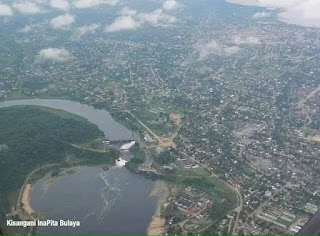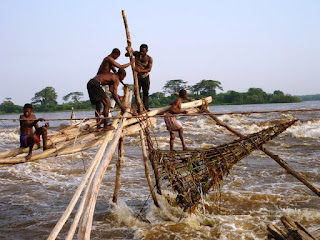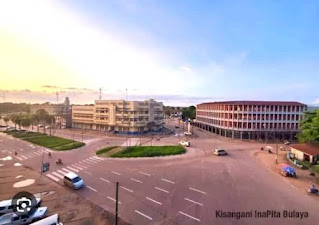KISANGANI, VILLE TOP MODÈLE
SOURCE : KISANGANI INAPITA BULAYA
10 RAISONS QUI FONT BEAU DE VIVRE À KISANGANI
3. Une ville où on trouve toutes les recettes de la RDC.
4. Une ville où il n'existe pas de conflits fonciers entre les groupes ethniques ou conflit de terre entre les ethnies.
5. Une ville où les religions sont pratiquées en interdépendance les unes les autres.
👉🏾 Chrétiens, Musulmans, Protestants, Kimbanguistes, Témoins de Jehova, Armée du Salut,... vivent en parfaite harmonie.
6. Une ville qui n'a pas de couleur politique. La ville n'appartient ni à l'opposition ni à la majorité.
👉🏾 Tout le monde peut y gagner les élections. Sur base de son programme.
7. Une ville où les drapeaux des partis politiques flottent le moins dans les rues.
👉🏾 Vous pouvez parcourir tout un quartier sans voir un seul drapeau d'un parti politique.
8. Une ville où les leaders politiques tiennent leurs meetings sans beaucoup d'incidents.
👉🏾 KISANGANI est la seule ville en RDC où tous les candidats aux présidentielles de 2006, 2011 et 2018 ont tenu leurs meetings sans interruption.
👉🏾 Pas question de recourir à un interprète pour faire passer le message comme c'est le cas pour d'autres villes.
10. KISANGANI est parmi les deux premières villes visitées par un Chef de l'Etat congolais élu après sa prestation de serment.
👉🏾 BONUS : KISANGANI est une ville où il n'existe pas le tribalisme, la discrimination ethnique, la xénophobie,... Tout le monde se sent comme chez lui.
👉🏾 La ville est d'ailleurs baptisée "VILLE HOSPITALIÈRE" par les visiteurs.
SOURCE : KISANGANI INAPITA BULAYA 💪🏾








Comments
Post a Comment